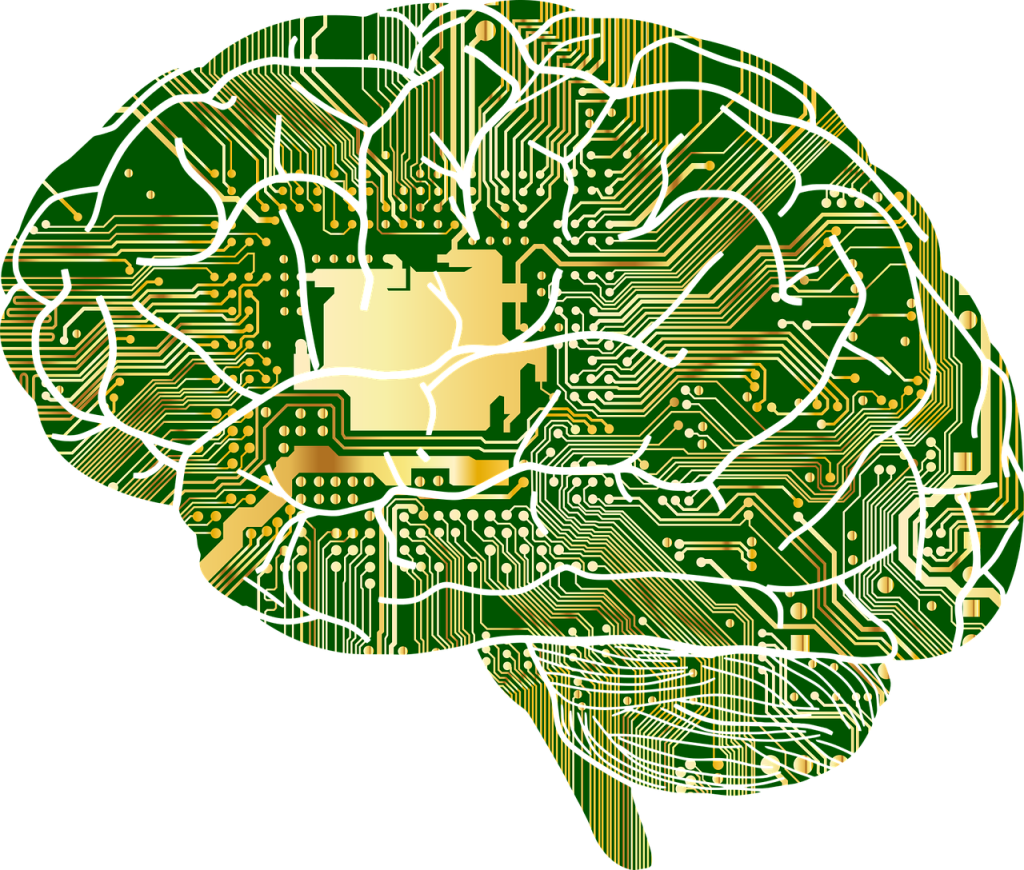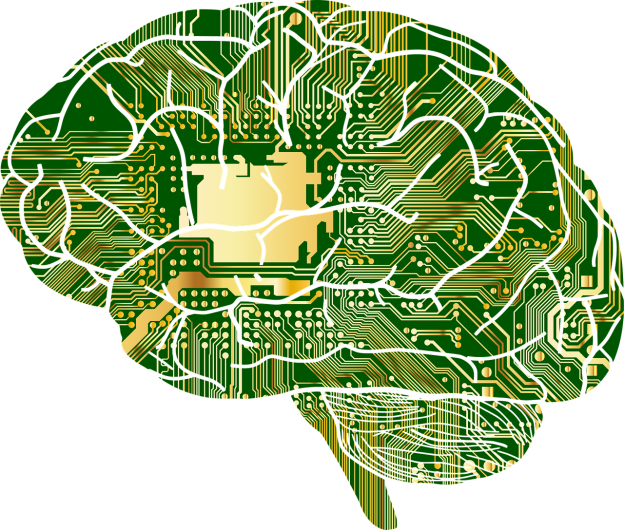Artificial Intelligence (AI) has revolutionized numerous industries, and the world of Search Engine Optimization (SEO) is no exception. As AI continues to advance, businesses are finding new ways to leverage its capabilities in order to improve their visibility and ranking on search engines. With the ability to analyze vast amounts of data, AI algorithms can now understand user intent, optimize content, and predict trends, ultimately reshaping the way SEO strategies are developed and implemented. In this article, we will explore the different ways AI is transforming the field of SEO and discuss the potential implications for website owners and marketers alike.

This image is property of pixabay.com.
Understanding AI in SEO
In today’s digital landscape, Artificial Intelligence (AI) is revolutionizing the way Search Engine Optimization (SEO) is conducted. AI refers to the capability of machines to simulate human intelligence and perform tasks that normally require human intelligence. In the context of SEO, AI is being used to automate various processes, analyze vast amounts of data, understand user behavior, and deliver highly targeted and personalized experiences. This article will explore the different ways in which AI is transforming the world of SEO.
Definition of Artificial Intelligence
Artificial Intelligence can be defined as the simulation of human intelligence in machines that are programmed to think and learn like humans. It involves the development of computer systems that can perform tasks such as natural language processing, problem-solving, learning, and data analysis. In the context of SEO, AI is used to automate processes and make data-driven decisions to improve website visibility, user experience, and search engine rankings.

This image is property of pixabay.com.
Overview of SEO
Before delving into the impact of AI on SEO, let’s first have a brief overview of SEO. Search Engine Optimization is the practice of optimizing websites to increase their visibility and rankings on search engine results pages (SERPs). It involves various techniques such as keyword research, content creation, on-page optimization, link building, and technical optimizations. The goal of SEO is to drive organic traffic and improve the quality and relevance of a website to satisfy user search queries.
AI-Powered Keyword Research
Keyword research plays a crucial role in SEO as it helps identify the terms and phrases that users are searching for. With the advent of AI, keyword research has become more advanced and efficient than ever before.
Automated Search Intent Analysis
AI-powered tools can analyze user search intent by examining patterns in search queries, user behavior, and content relevance. By understanding the intent behind user queries, marketers can tailor their content to provide the most relevant and valuable information. AI algorithms can recognize and categorize search queries as informational, transactional, or navigational, allowing website owners to create targeted content to address each type of intent.
Natural Language Processing (NLP) in Keyword Optimization
Natural Language Processing (NLP) is a branch of AI that focuses on the interaction between computers and humans through natural language. NLP techniques can help optimize keywords by employing AI algorithms to understand the context and meaning behind search queries. This allows website owners to create content that is more aligned with user intent, ultimately improving search rankings and visibility.

This image is property of pixabay.com.
Content Generation and Optimization
Creating high-quality content that resonates with users is fundamental to SEO success. AI is transforming the way content is generated, optimized, and evaluated, leading to improved relevance and engagement.
Automated Content Creation
AI-powered content generators can generate unique and relevant content by analyzing vast amounts of data and identifying patterns. By leveraging AI algorithms, these tools can produce articles, product descriptions, and blog posts that are optimized for specific keywords and tailored to target audience preferences.
Improved Content Relevance and Engagement
AI can analyze user behavior, preferences, and search patterns to identify content gaps and improve relevance. By understanding user intent and preferences, AI algorithms can deliver personalized content recommendations, resulting in higher engagement and improved user satisfaction.
Enhanced On-Page Optimization
AI can assist in optimizing on-page elements such as meta tags, headings, and internal linking structures by analyzing data and identifying areas for improvement. AI algorithms can recommend changes to optimize these elements for better search engine visibility and user experience.
Voice Search and AI
The rise of voice assistants and smart speakers has dramatically impacted the way people search for information. AI technologies are at the forefront of enabling voice search optimization and providing a seamless user experience.
Impact of Voice Assistants on SEO
Voice assistants such as Amazon’s Alexa, Apple’s Siri, and Google Assistant have become ubiquitous in households worldwide. With the growing popularity of voice search, the SEO industry has had to adapt to this new shift in user behavior. Voice search queries tend to be longer and more conversational compared to traditional text-based searches. AI is crucial in understanding and optimizing for these voice queries.
Optimizing Content for Voice Search
AI-powered tools can analyze voice search data to identify popular voice queries and help optimize content accordingly. SEO professionals can use AI-generated insights to create content that aligns with user intent, answering questions in a clear and concise manner. By optimizing for voice search, websites can improve their chances of ranking in voice search results and capturing valuable organic traffic.

Automated SEO Audits and Analysis
Regular SEO audits are essential to identify and resolve issues that may be impacting a website’s visibility and performance. AI-powered tools can automate the auditing process, providing comprehensive insights and recommendations.
AI-Driven Website Crawling and Indexing
AI algorithms can crawl websites, analyze their structure, and index pages more efficiently than ever before. This allows for faster and more accurate indexing, ensuring that content is discovered and ranked by search engines in a timely manner.
Identifying Technical SEO Issues
AI-powered SEO tools can analyze website performance, identify technical issues, and provide actionable recommendations for improvement. Whether it’s identifying broken links, duplicate content, or slow-loading pages, AI algorithms can scan websites at scale, saving valuable time and resources for SEO professionals.
Enhancing Website Performance and User Experience
AI technologies can analyze user behavior data to identify areas where website performance can be enhanced. By understanding how users interact with a website, AI algorithms can recommend optimizations to improve user experience, such as reducing page load times, improving mobile responsiveness, and optimizing site navigation.
Personalization and User Experience
Delivering personalized experiences and understanding user intent is a crucial aspect of modern SEO. AI plays a significant role in analyzing user data and providing tailored recommendations.
AI-Based User Intent and Behavior Analysis
AI algorithms can analyze vast amounts of user data, including search history, demographics, and preferences, to understand user intent and behavior patterns. By analyzing this data, website owners can deliver personalized content and experiences, increasing user engagement and satisfaction.
Personalized Content Recommendations
AI-powered recommendation engines can analyze user behavior and preferences to suggest relevant and personalized content to individual users. By delivering highly targeted content recommendations, websites can increase user engagement, time on site, and conversion rates.
Dynamic Website Optimization
AI can dynamically optimize websites based on user interactions and preferences. By using AI algorithms to personalize elements such as headlines, images, and calls to action, websites can create unique and engaging experiences tailored to each user, increasing overall satisfaction and driving conversions.

AI-Enhanced Link Building
Link building is a crucial aspect of SEO, as it helps improve a website’s authority and visibility. AI is transforming the way link building strategies are developed and implemented.
Automated Backlink Analysis
AI-powered tools can analyze backlinks on a website and identify their quality and relevance. By leveraging AI algorithms, SEO professionals can automate the process of analyzing backlinks, saving time and resources. This allows for more effective link building campaigns that focus on obtaining high-quality backlinks from authoritative sources.
Intelligent Link Building Strategies
AI algorithms can analyze vast amounts of data to identify link-building opportunities and develop intelligent strategies. By leveraging AI insights, SEO professionals can prioritize websites and influencers that are most likely to provide valuable backlinks. This data-driven approach to link building can greatly enhance the effectiveness and efficiency of SEO campaigns.
Ranking Algorithm Updates and SERP Features
Search engine algorithms constantly evolve and update to provide more relevant and accurate search results. AI is being used to improve these algorithms and influence the way search engine rankings are determined.
Utilizing AI in Search Engine Ranking Algorithms
AI-powered algorithms can analyze vast amounts of data to understand user behavior, search queries, and content relevance. By leveraging AI in search engine ranking algorithms, search engines can deliver more accurate and personalized search results, improving the user experience and ensuring that the most relevant content is displayed.
Impact of AI on Featured Snippets and SERP Features
Featured snippets and other SERP features play a significant role in providing quick and concise answers to user queries. AI algorithms are used to identify and display relevant content as featured snippets. By optimizing content for these SERP features, website owners can increase their visibility and attract more organic traffic.
AI and Local SEO
Local SEO focuses on optimizing websites for search queries that are location-specific. AI is transforming the way local SEO is approached and implemented.
Localized Search Intent Analysis
AI algorithms can analyze location data, user preferences, and search queries to understand localized search intent. By leveraging AI insights, businesses can provide highly relevant and tailored content to users based on their geographical location, increasing the chances of appearing in local search results.
Improved Accuracy in Local SEO
AI technologies can assist in optimizing local listings, managing reviews, and improving the accuracy of business information across various platforms. By leveraging AI algorithms, businesses can ensure that their local SEO efforts are up to date and relevant, increasing visibility and attracting potential customers in their target markets.
AI-Powered Competitor Analysis
Understanding competitors and their strategies is crucial in developing successful SEO campaigns. AI is revolutionizing competitor analysis by automating the process and providing valuable insights.
Automated Competitor Research
AI-powered tools can analyze competitors’ websites, content, backlink profiles, and ranking strategies at scale. By automating competitor research, SEO professionals can save time and resources, allowing for more effective strategies to be developed.
Extracting Competitive Insights
AI algorithms can analyze vast amounts of data to extract valuable insights about competitors’ strategies and tactics. By leveraging AI insights, SEO professionals can gain a deep understanding of their competitors’ strengths and weaknesses, enabling them to develop more effective and targeted SEO campaigns.
In conclusion, AI is transforming the world of SEO by automating processes, improving content relevance and engagement, enhancing website performance and user experience, revolutionizing link building strategies, and influencing search engine ranking algorithms. By embracing AI technologies, businesses can stay ahead of the curve and adapt to the ever-changing SEO landscape, ensuring maximum visibility and success in the digital realm.
